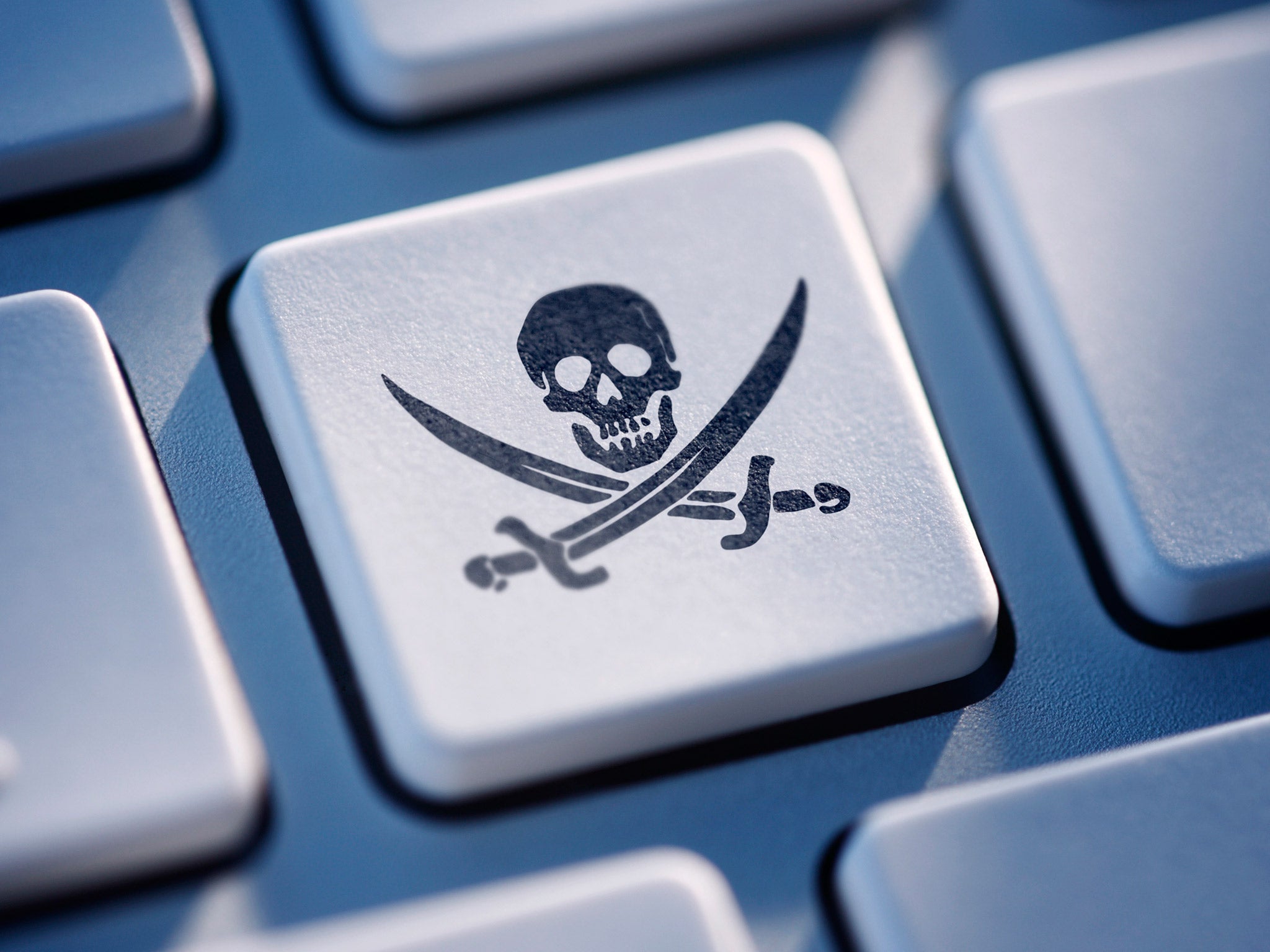New internet piracy warning letters rules dismissed as 'toothless'
Creative Content UK claim letters are designed to educate infringers

New rules to combat internet piracy which will see persistent file-sharers merely being sent “educational” warning letters have been dismissed as “toothless” and “pointless” in defending the work of musicians and other artists.
From next year, Internet Service Providers (ISPs) will be able to send a maximum of four emails or letters to customers who they believe have been downloading files illegally. Although the language of the letters will escalate in severity, they will have an educational tone and will not contain the threat of legal action.
The new scheme, known as Creative Content UK, is the result of almost four years of discussions between the Government, ISPs and the BPI and Motion Picture Association, the bodies which represent the British music and film industries respectively.
The entertainment industry had initially wanted ISPs to keep a database of suspected illegal downloaders and warn them they may be prosecuted, as well as threatening them with having their internet connection slowed down or cut off entirely. But under the new rules, no further action will be taken after the fourth letter is sent.
Steve Kuncewicz, head of intellectual property and media at Bermans LLP and an expert on internet law, told The Independent that musicians and other artists had ended up with a “very watered down, pretty pointless” agreement which merely amounted to telling people: “Don’t do it again”.
He added: “If I were in the content industry I’d be very angry about this, because the Government is pretty much abrogating its responsibility to take any kind of action. There’s no punitive measure allied to any of this initiative.
“The law is the law, but the problem is that pursuing every infringement of the law is a very expensive business. What the content industry were hoping would happen is the Government would take a bit of a harder stance on this. This is ultimately a pretty toothless set of sanctions.”
Sources said the organisations representing the creative industries had accepted that given the explosion of music and film streaming services such as Spotify and Netflix, guiding people towards legal outlets was the best way to combat small-scale piracy.
A spokeswoman for Creative Content UK said that the new rules were about “persuading the persuadable” to stop downloading music and films illegally and were only part of a “much broader range of activities” intended to target internet piracy.
These included the blocking of large file-sharing websites such as The Pirate Bay through ISPs and the removal of pirated content from search engine results. The spokeswoman added that it was “totally inaccurate” to describe the changes as an effective decriminalisation of internet piracy.
Gennaro Castaldo, a spokesman for the BPI, said the scheme should not be seen as a “silver bullet” to deal with the problem of internet piracy. “[It] is first and foremost an education initiative, and education initiatives by their very nature are not about sanctions or the use of a ‘stick’,” he said. “They are about creating learning, awareness and engagement, and in this case ultimately trying to encourage more people towards the growing number of legal digital services that are now available.”
But Jack Allnutt, a spokesman for the UK Pirate Party, which campaigns for internet freedom, said: “It’s ridiculous to think that a spam programme will do anything to benefit artists. These emails will no doubt end up filed in the same place as appeals for bank account details from ex-dictators.”
A “major multimedia education awareness campaign” about piracy is also planned for the spring, to which the Government will contribute £3.5 million. So far the four main ISPs – BT, Sky Broadband, TalkTalk and Virgin Media – have agreed to take part in the scheme, with smaller ones expected to follow later. There is currently no firm date as to when they will start sending out the warning letters.
A spokesperson for the Department of Business, Innovation and Skills said: “We are confident that Creative Content UK will have a positive impact tackling piracy. What we have found is that many people are not necessarily aware that what they are doing is illegal. The new alerts make users aware of the impact of illegal downloading and will help promote the use of legal digital content.”
Join our commenting forum
Join thought-provoking conversations, follow other Independent readers and see their replies
Comments
Bookmark popover
Removed from bookmarks